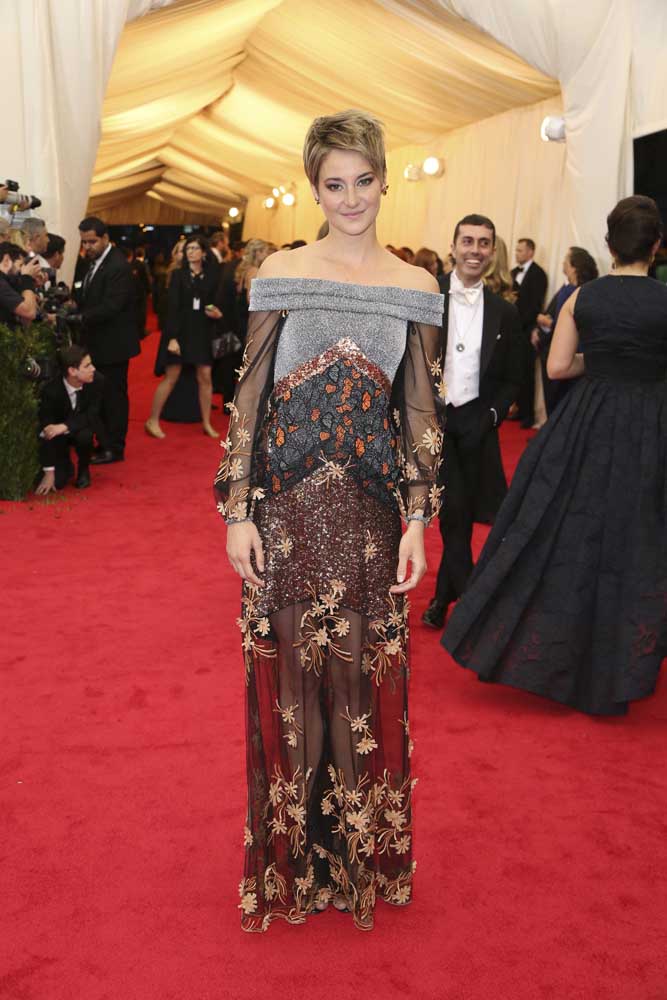Celebrities grapple with feminism
Published 12:00 am Saturday, May 24, 2014

- New York Times News Service file photoThe online backlash was swift after Shailene Woodley told Time magazine in an interview that she did not consider herself a feminist.
In a recent interview with Time magazine, actress Shailene Woodley was asked if she considered herself a feminist.
“No,” said Woodley, 22. “Because I love men, and I think the idea of ‘raise women to power, take the men away from the power’ is never going to work out because you need balance.”
It was a somewhat surprising response from an actress known for portraying strong-willed women in films like “The Spectacular Now,” “Divergent” and “The Fault in Our Stars,” to be released soon.
“She’s hardworking and talented, and the fact that she can open a movie is feminism in action,” said Melissa Stack, a screenwriter who wrote “The Other Woman” (a film Woodley called “really neat” in Time for “creating a sisterhood of support for one another versus hating each other”).
Woodley has a reputation for being outspoken about environmental causes and has aired her support in numerous interviews. But the online backlash to her comment about feminism came quickly.
Jennifer Weiner, 44, a novelist, took to Twitter to write, “Dear Young Actresses: Before you sound off on feminists and how you’re not one, please figure out what feminism is.”
Zerlina Maxwell, 32, a political analyst, chimed in with, “Here’s another actress rejecting a feminist label she can’t define properly.”
Open letters addressed to Woodley showed up on The Huffington Post and on YouTube.
“My reaction was, ‘Oh, no, not again,’” said Sarah Marian Seltzer, 31, who wrote one such retort, “Dear Shailene Woodley,” for the website Hairpin. “There is this pattern of celebrities immediately saying, ‘No, I’m not a feminist, I love men,’ and there’s not a chance for a follow-up learning experience for anyone.”
Andi Zeisler, 41, a founder of the feminist pop culture magazine Bitch, said, “Just the fact that these questions are being asked shows that feminism is a lot more accepted.”
The problem, she said, is that some celebrities do not know what the core values and goals of feminism are.
“I don’t care if people don’t identify as feminist,” Zeisler said.
She does have a problem with misinformation and the perpetuation of the idea that feminism is “this zero-sum game that if it elevates women, then it denigrates men. That’s just wrong and has never been what feminism is about. That’s the Fox News version of feminism.”
Popping up in pop culture
Over the last year, feminism has achieved a certain ubiquity in pop culture. Last October, Glamour magazine published an article with the title “The New Do: Calling Yourself a Feminist.” Sheryl Sandberg, 44, the chief operating officer of Facebook and the author of “Lean In,” told HuffPost Live in April: “I embrace the word ‘feminism.’ I didn’t do it earlier in my career, and I talk about why in the book, but I embrace it now because what feminism is, is a belief that the world should be equal, that men and women should have equal opportunity.”
As was widely discussed in social media, Beyonce, 32, also had a form of feminist coming-out last winter. She had previously flirted with the term, telling British Vogue last spring, “I guess I am a modern-day feminist.”
But she also added, “Why do you have to choose what type of woman you are? Why do you have to label yourself anything? I’m just a woman, and I love being a woman.”
By the December release of her album “Beyonce,” one song on it, “Flawless,” sampled the TED talk of author Chimamanda Ngozi Adichie titled “We Should All Be Feminists” and includes a quote from it: “Feminist: the person who believes in the social, political and economic equality of the sexes.” And in January, the singer wrote a post titled “Gender Equality Is a Myth!” for The Shriver Report.
Zeisler pointed to Beyonce as a celebrity who “publicly grappled with feminism and found her own path to it — that’s the right way to do it, rather than denigrating it, which is what happens with these sound bites.”
Warming to the term
Beyond the confines of Hollywood, American women appear to be warming to the term; according to a study by Ms. Magazine, the number of women calling themselves feminists increased from 50 percent in 2006 to 68 percent in 2012.
But ambivalence like Woodley’s is as much a part of the discussion. Monica Lewinsky, 40, wrote in Vanity Fair’s June issue, “Given my experience of being passed around like gender-politics cocktail food, I don’t identify myself as a Feminist, capital F.”
And she is joined by a host of other celebrities who question the usage, including Lady Gaga, 28, who was quoted telling a Norwegian camera crew, “I’m not a feminist! I love men! I hail men.”
Kelly Clarkson, 32, told Time last October, “I think when people hear feminist, it’s like, ‘Get out of my way, I don’t need anyone.’”
Carrie Underwood, Katy Perry, Carla Bruni, Sandra Day O’Connor and Taylor Swift have similarly distanced themselves from the designation during their careers.
The problem is really whether a famous person is simply checking the feminist box, said Roxane Gay, the author of an essay collection “Bad Feminist,” which comes out this summer.
“Forty years ago it was a good question, but in 2014 it’s a ridiculous question and a lazy question,” said Gay, 39. “As culture critics, we have to start advancing the conversation and asking questions that are more grounded in feminism, like ‘How does feminism shape your life?’”
But there is value in public figures taking up the movement, said Martha Plimpton, 43, an actress who, like Woodley, became famous during her teenage years.
“I take a lot of pride in calling myself a feminist and always have,” she wrote in an email. “We’re going to have to insist on correcting bigotry as it happens, in real time. And fear of women’s equality, or the diminishment of it, is a kind of bigotry. I think it’s important to remove the stigma associated with women’s equality, and as such, yes, normalizing the word ‘feminist’ and making sure people know what it means is incredibly important, whether we’re talking to celebrities or anyone.”








